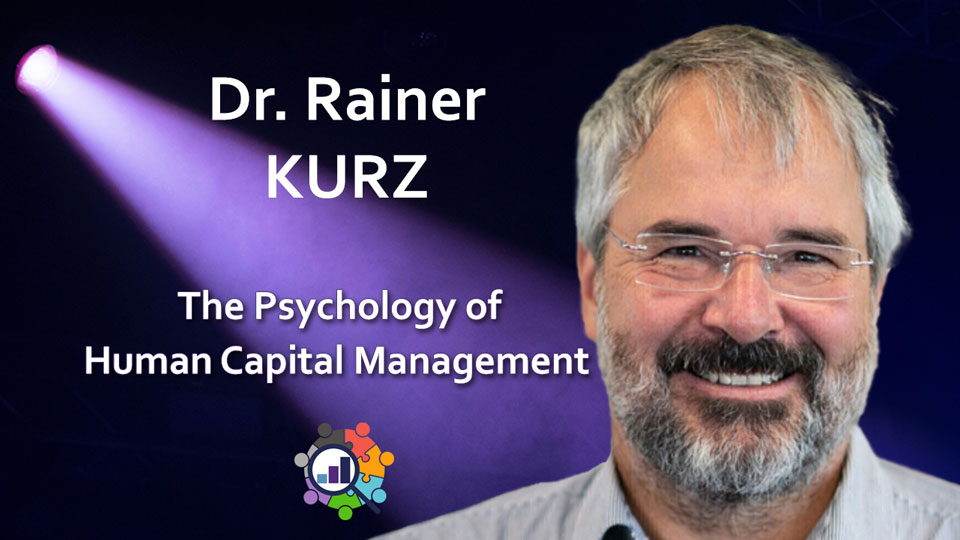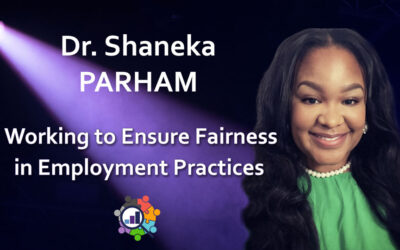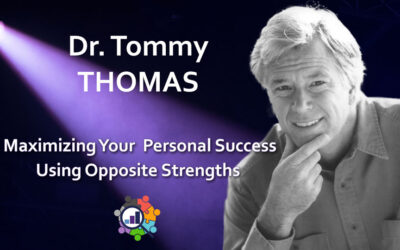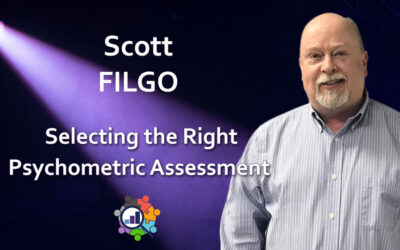A CykoMetrix Spotlight Production
Every week, the Spotlight shines on an amazing professional with a story to tell and lessons to teach. Welcome to the CykoMetrix Spotlight.
The following is an adapted transcript of the exchange between Sylvain Rochon, CMO at CykoMetrix as host, and Rainer Kurz, Chief Psychologist at HUCAMA.
www.linkedin.com/in/rainer-kurz-4a0b14
Sylvain Rochon: Hello, welcome to Psychometric Spotlight. My name is Sylvian Rochon. I’m the Chief Marketing Officer at CykoMetrix, a leading-edge combinatorial, psychometric, and human data analytics company that brings the employee assessment industry to the cloud with instant assessments, in-depth analysis, trait measurements, and team-based reporting features that simplify informed decision-making around recruiting, training, and managing today’s modern workplace. Today my guest in the spotlight is Rainer Kurz. He’s the Chief Psychologist at HUCAMA. He’s a Chartered Psychologist based in London with more than thirty years of occupational testing R&D experience specializing in assessment technology. Since joining HUCAMA in July 2020 as Chief Psychologist, he has been developing the HUCAMA FACTORS range – ability, personality, and competency assessment tools – together with HUCAMA CEO Michele Guarini, who is based in Copenhagen.
Rainer authored more than 150 papers, posters, articles, and book chapters. At the BPS he was a Science and Practice Strategy Convener for the BPS Division of Occupational Psychology and is a consultant editor for the Psychometric Testing Center test review process. He studied Psychology in Germany before completing his Master of Science in Industrial Psychology with a thesis on computer-based assessment under Professor Dave Bartram at Hull University, and his Ph.D. on occupational testing under Professor Ivan Robertson at UMIST. So, lots of work in assessments, Rainer, and lots of experience engaged with testing and with important bodies. Welcome to the Spotlight.
Dr. Rainer Kurz: Thank you Sylvain for your kind introduction and for inviting me to this international collaboration. I’ve chosen as my title, ‘The Psychology of Human Capital Management’, and if I can, I will briefly explain why I chose that as a title. At face value, my company is called HUCAMA, which stands for Human Capital Management. So that’s what the idea was when Michele Guarini founded the company in 2009 to make a difference in that sphere by producing online assessment tools.
Sylvain: What does it mean though? Human capital management, these are words that are common. People understand what each word means, but what does it mean to you when they’re combined together in your business?
Rainer: I don’t think too deeply about it and don’t try to define what it’s meant to be about. I’m proud that I never had the word ‘manager’ in my job titles, so I hate the idea, but someone’s got to do it. Someone has to sort out people and tasks to get things done, and that’s in a way, management, what it’s all about. A lot of management is about measurement, and it becomes even more important when we talk about human capital management. If we want to know what our human capital is, we need to measure people, and ideally also the environment, and so that’s where assessment comes in.
Sylvain: Right. Tell me about the process at HUCAMA since you are a company that does this. How do you use assessments? What kind of assessments and what is your process, your method with clients?
Rainer: In a way, we keep it simple. We offer measures of potential and measures of performance. So, we’ve got a suite called HUCAMA FACTORS, which consists of three ranges. Competency Factors is about measuring performance, about effectiveness at the workplace, and our tool just takes six minutes to complete. We can do a self-completion and have boss, peer, subordinate, mentor, coach, family, friend etc. raters. It really is about performance in the workplace. That’s very informative, but if you want to understand where performance comes from, then we have to dig deeper and we need to look at personality and ability, and for that, we developed Personality Factors and Ability Factors.
Sylvain: So, you have the assessments available and what do you do with a client? What is your engagement style and the services with clients?
Rainer: My ideal client is someone who wants to take talent management seriously, and for those clients, I would always recommend using all suite tools in combination. One of my favorite clients had put four hundred people through an ability test, a personality questionnaire, and Competency 360. For Competency 360, you take the reviewer ratings and then you get a three-legged stool that doesn’t fall over. You take the average standard scores, you can rank order people, and you get a very sensible ranking of people who are the top talent, and it produces the checks and balances that are needed.
Sylvain: Excellent. HUCAMA doesn’t offer consultations over the reports, I don’t think. Do they?
Rainer: We prefer clients that become self-sufficient as much as possible. We do product-based consulting as needed, but we want to empower other users. So, we offer accreditation training courses which are three days from scratch, or just one day if people are experienced users. That kind of familiarization gets the basic kind of knowledge and expertise in place. But of course, it’s with actually usage that we become properly familiar with assessment tools.
Sylvain: Absolutely. Could you tell me why these assessments are useful and important for clients of yours?
Rainer: I think performance matters. If you next fly to Europe, you don’t want your plane to crash, you want a pilot who is competent. And it’s in every job like that, you need competent people that perform the role requirements. So, I think there’s a universal need for people to perform well and individual performance contributes to team performance, department performance, company performance, country performance, the performance of the universe…
Sylvain: From other guests, what I’ve discussed was the importance to actually do measurements, to use tools for measurements. The reason for it is that human beings are terribly biased, and we perceive things in certain ways that makes it hard for us to determine if there’s an actual change in behavior. Without the tools, it’s hard to have a good gauge of what’s happening with us. Do you think that’s a fair statement?
Rainer: I would say that people are actually generally quite good at knowing themselves, but that through assessments we can improve people’s self-awareness of what they are like, but even more importantly, perhaps, of what other people are like. So, I’ve been working on a report recently about team roles, which are quite similar to the CykoMetrix ones. We’ve got eight roles and I did a page where all the roles are described, but also one on how to speak with others and how to interact with people who have a particular role preference. That’s why assessment tools can help us understand ourselves and others better. But I wouldn’t say that we are inherently biased. It’s just life. It’s called life.
Sylvain: That’s interesting. A follow-up on your assessments and those that are made by HUCAMA that you’ve participated in creating, what makes those assessments better or different, or more useful than other assessments that are currently in the market? There’s a ton of them.
Rainer: In a way, we are standing on the shoulder of giants. We are integrating 40 years of assessment work. Its going perhaps even further back to 16PF on which the late Peter Saville did his Ph.D., he then developed OPQ, and we are harnessing the research since 1984 when OPQ came out. I am building on the Saville Wave research that I was part of – I’m a named author of the main tools. For good measure we also incorporate NEO, PAPI, Reflector, Cubiks Factors, leadership theory (transformational, transactional development research), and of course the Great 8 competencies that I developed with Professor Dave Bartram in the late nineties when I was at SHL.
Sylvain: It seems to me, like you said, you’re standing on the shoulders of giants, which is a fairly standard way to explain how science works in general. We always build on top of other people’s research. Would it be fair to say that your specific assessments are a useful tuning of previous research, but to make it more practical maybe in the workplace?
Rainer: Yeah. In a way, I’ve been perhaps a bit imprecise because I can’t really stand on my own shoulders. I’m trying to be modest, but, in a way, I developed the Great 8 and Dave Bartram helped to make them a reality by becoming my boss. He was my mentor and thesis supervisor, and I’m very grateful that he officialised my ten years of research, and suddenly it became acceptable. Also, like at Saville Consulting, I’ve been really the major architect behind the models. So, I perhaps should clarify that. I’m doing some of the things that I wanted to do for the last twenty years. I feel like I’ve been let loose. I spent too much time in the ‘golden cage’ and now I’m breaking out and I can do pretty much what I want. 80% of my ideas get accepted and 20% of ideas get rejected, usually by myself after feedback from partners, so watch this space. So, there are some rather powerful features. I can explain them if you like.
Sylvain: Yes. What are you working on?
Rainer: The simple stuff is our ability test. What we tried to do was a short, sharp measure of general mental ability that is as culture-fair and language free as possible. So, we use diagrammatic matrices, number series and spatial reasoning. There are no words in the items. So, you can have a very comparable measurement across the globe. The educational, and socioeconomic status differences are much smaller than usual. So that’s the easy bit – Ability Factors. With Competency Factors we are giving a fresh lick of paint to the idea of the Great 8 competencies, and we’ve got a six-minute tool. That is much more manageable than most 360s that are out there. But the real innovations are for Personality Factors where we’ve got three versions, three levels of the tool, which are built in a cumulative way. So, the shortest version has eighty items to measure 16 facets. that’s for general use. That’s the core version. Then we add another eighty items, another 16 facets to get the extended version for professional assessment solutions. Then we add another eighty items to have the full executive version. That’s one example to make the solution scalable and that’s more a practical kind of benefit. The other benefits are more on the measurement side.
Sylvain: That’s really cool. Well, I don’t know how many assessment makers and researchers that are working on creating solutions, but I’m always amazed at how creative we can be to assess reliably a person in some way. The more tools we have inside, used in business, then the more insights we can get, especially if they are reliable and have validity behind them. That’s really important work what you’re doing.
Rainer: Yeah. Basically, we try to benchmark to the leading tools in the market and get the level of reliability and validity expected. What we add on is, for example, in light of market trends, towards online assessments and reporting. We are providing the expert report item level content, including the response given. We are using item-level norming, which is previously unheard of, to indicate not just a standard error of measurement, but a ‘Range’ which is an individualized error of measurement indication so that we can highlight inconsistencies. We have something called the ‘Talent Gap’ where we compare self-efficacy beliefs with the general preference, and where that is out of sync it invites discussion and probing. Perhaps the most important bell or whistle, or whatever the phrase is, is the ‘Intra-Personal’ (IP) score where we take out the effect of acquiescence, which is plaguing the normative questionnaires, and we give a prompt that shows the IP score which is corrected for acquiescence. With that, we can probe into extremely high scorers i.e. where will the mask crack under pressure? We can also probe into extremely low scores i.e. where people are lacking self-esteem, then we can see where under pressure perhaps they rise to the challenge. So, I’m very proud of that. I invented in 2002 on some island in Fiji that method.
Sylvain: Those seem to be very important tools. I can see the applications for businesses, especially regarding self-assessments. A person may answer questions very differently depending on their state of mind. So, if you can have indicators on what’s happening within the person’s state of mind while they’re doing assessments, not only the results of the assessments proper. That can be very interesting data to explore for somebody that wants to help staff, for example, grow or become better or have better self-esteem or maybe less of an ego or whatever they that may maybe skewing the data.
Rainer: It raises important questions, what you say there. Of course, people have ideas of development and developing people, but it’s quite a judgment call. We, for example, stay clear of development tips at the moment. We just feedback on the results including the implications page where we look at what the most extreme scores are, what are the good points about the extreme tendencies, but also what can happen hypothetically if you overdo an extreme behavior. We find that is quite a helpful approach to first get ownership of the results and secondly, to then get people thinking to reflect on how their extremes play out at the workplace. That’s where the skilled facilitation comes in of a coach or a user – that you identify the whole requirements and you talk to people and you, kind of, put some flesh on the skeleton, and not jump to conclusions such as ’You have to develop this and that’.
Sylvain: Yeah. Well, it’s always about the interpretation. In principle, a person is perfect the way they are, just like your mother used to say. So, it’s really the HR or the individual or maybe the consulting company that reads an assessment that decides whether or not certain things need to be improved or changed. That’s an interpretation, so it’s important to have good interpreters.
Rainer: I would take issue with the term you use ‘a person is perfect as they are’. I would just say people are the way they are but even that needs to have caveats. They are like this or that in certain environments with certain people and that’s what we need to understand, that personality is predisposition to behave, a tendency to behave in a particular way. It can vary considerably how you relate to your peers, your subordinates, and your boss… That’s why we value 360 data. Also, over time, you mentioned issues of stability and so on. On a good day, I might be a ‘Max Mustermann’ and have a Sten 10 on self-image, but on a bad day, I hide under the table.
Sylvain: Yeah. Personality, behaviors, and attitudes, they are kind of fluid over a certain baseline for each individual, and we change over time, right? Which hopefully, is on an improvement path, of course. That’s what we all hope. It’s lovely speaking with you, Rainer. I think HUCAMA can be very useful for a lot of businesses because it’s so targeted. I’d like to invite everybody watching this or reading this as a blog. If you’re interested to learn more about HUCAMA (www.hucama.com), I put up the link for HUCAMA so you can contact Rainer also on LinkedIn and through the HUCAMA website and get acquainted with the assessments. You can do the assessments pretty easily. Check them out and if they’re useful for you, well, use them and use the expertise there. Thank you so much for participating in the spotlight, Rainer.
Rainer: Thank you.
About Dr. Rainer Kurz– www.linkedin.com/in/rainer-kurz-4a0b14
Rainer is a Chartered Psychologist based in London with more than 30 years of occupational testing R&D experience specialising in assessment technology.
Since joining HUCAMA in July 2020 as Chief Psychologist he has been developing the HUCAMA Factors range of ability, personality and competency assessment tools together with HUCAMA CEO Michele Guarini who is based in Copenhagen.
In his previous role at Cubiks he architected half a dozen assessment tools and raised the academic profile of the company by presenting peer reviewed submissions at the Association for Business Psychology, BPS Division of Occupational Psychology, EAWOP, SIOP and ITC conferences.
At Saville Consulting he developed 50+ aptitude tests and contributed to the development of Saville Consulting Wave and the Performance Culture Framework.
At SHL Rainer developed on-screen testing and expert system solutions based on extensive validation work that culminated in the World of Work (WoW) model and the inception of the Universal Competency Framework (UCF).
Rainer authored more than 150 papers, posters, articles and book chapters. At the BPS he was the Science & Practice Strategy Convener for the Division of Occupational Psychology and is a Consultant Editor for the Psychometric Testing Centre (PTC) test review process.
Rainer studied Psychology in Germany before completing his MSc Industrial Psychology (thesis on computer-based assessment under Prof. Dave Bartram) at Hull University and his PhD on Occupational Testing under Prof. Ivan Robertson at UMIST.
About CykoMetrix – www.CykoMetrix.com
CykoMetrix is a leading edge combinatorial psychometric and human data analytics company that brings the employee assessment industry to the cloud, with instant assessments, in-depth analysis, trait measurements, and team-based reporting features that simplify informed decision-making around recruiting, training, and managing today’s modern workplace.



